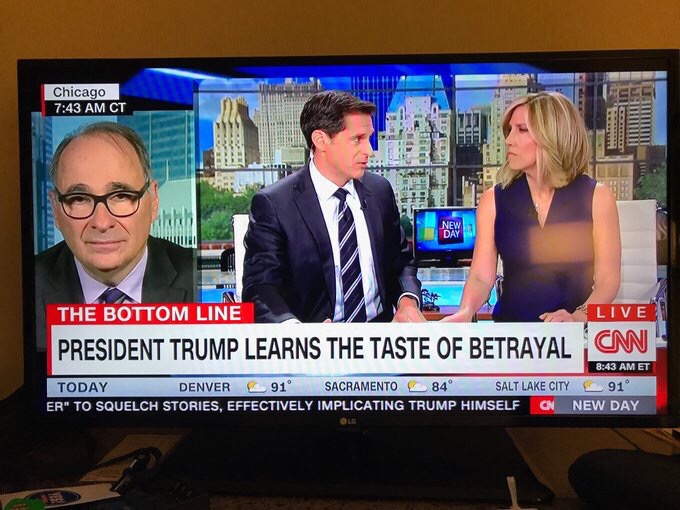KINSELLACAST 28: Kinsellas campaign for Democrats – plus Mad Max and ask any question you want!
Klingons writing headlines at CNN
[h/t Prof. Seth Masket]

Mid-terms: the Canadian connection
The most beautiful #Democrat canvassing in South Portland! #USPolitics #cdnpoli pic.twitter.com/8W3WJnsZpo
— Warren Kinsella (@kinsellawarren) August 24, 2018
Adler-Kinsella on the Disunited Right
Boy, nobody saw this coming
@MaximeBernier to set up his own right wing party #cdnpoli #CPC18 https://t.co/Cly7wkQfkc
— Robert Fife (@RobertFife) August 23, 2018
Said no one.
What does it say about Consevatives? It says that they never ever change: Tea Party vs. Establishment Republicans, Reform vs. PCs, and so on and so on. Conservatives are always at war with themselves.
This also proves my Justin Trudeau theory, yet again: he may not be as smart as his Dad, he may not be as politically skilled as Chretien, he may not be as principled as Dion. But, Jesus, is he ever lucky.
When your main adversaries are The Mango Mussolini, Blandy Scheer, Mad Max and the Guy Who Leads the NDP, you can’t help but win.
Boom
Michael Cohen in a courtroom in SDNY, under oath, declared that the President directed him to commit a federal crime.
— Preet Bharara (@PreetBharara) August 21, 2018
Toronto, after Ms. Keesmaat’s separatist vision becomes shocking reality

The Conservative Party’s new heroine
From next week’s Hill Times column:
The Storm Alliance are led by a former Soldiers of Odin leader, Dave Tregget. Like David Duke did for the Ku Klux Klan forty years ago, Tregget’s strategy is to project a kinder, gentler image for anti-migrant, anti-refugee agitation. It’s attracted the same sorts of white supremacists, neo-Nazis and bigots that Soldiers of Odin did and do. But it’s more media-savvy.
Thus their presence at the Trudeau event, video cameras in tow. They were after uncritical media coverage, and they got lots of it.
The Storm Alliance’s previous media event hadn’t gone as well. In July, the Storm Alliance teamed up with another Quebec-based refugee-hating group, La Meute (roughly, The Wolf Pack). The two groups gathered on Canada Day at Hemmingford, Quebec, to intimidate migrants and prevent them from crossing the border.
White supremacist Faith Goldy, now a Toronto mayoral candidate, showed up to offer Storm Alliance her support. She whips up hate, and she’s good at it.
Storm Alliance’s Blain was the right choice to whip up hate at the Justin Trudeau event, too. She is a member of another anti-immigrant group, the Front Patriotique du Quebec, and is a separatist. A few months ago, a Front Patriotique admin opined on Facebook the need for a “terrorist attack to wake up people.”
Blain seems to dislike Muslims, a lot. A few months ago, she refused to be touched by a Muslim student at a dental clinic at the University of Montreal.
At the Trudeau rally, she started screaming about illegal immigrants, and she got the attention of both the media and the Prime Minister of Canada. The cameras followed her at the event, and Justin Trudeau even engaged with her – forcefully but not inappropriately.
The Conservative Party of Canada, right up to and including Andrew Scheer, loudly denounced Trudeau for abridging Blain’s “freedom of speech.” On Twitter and elsewhere, Conservatives condemned Trudeau for the sin of opposing Diane Blain. They sounded like they tought Diane Blain was a hero.
She isn’t. She’s a racist.
I unreservedly support you except for the times I don’t
Hi candidate Jen Keesmaat, meet Chief Planner Jen Keesmaat from last September.
She thinks Mayor Tory "deserves a mandate to continue the work he's already begun." #TOpoli pic.twitter.com/pFto6lO5iI
— Andrew Tumilty (@AndrewTumilty) August 13, 2018
